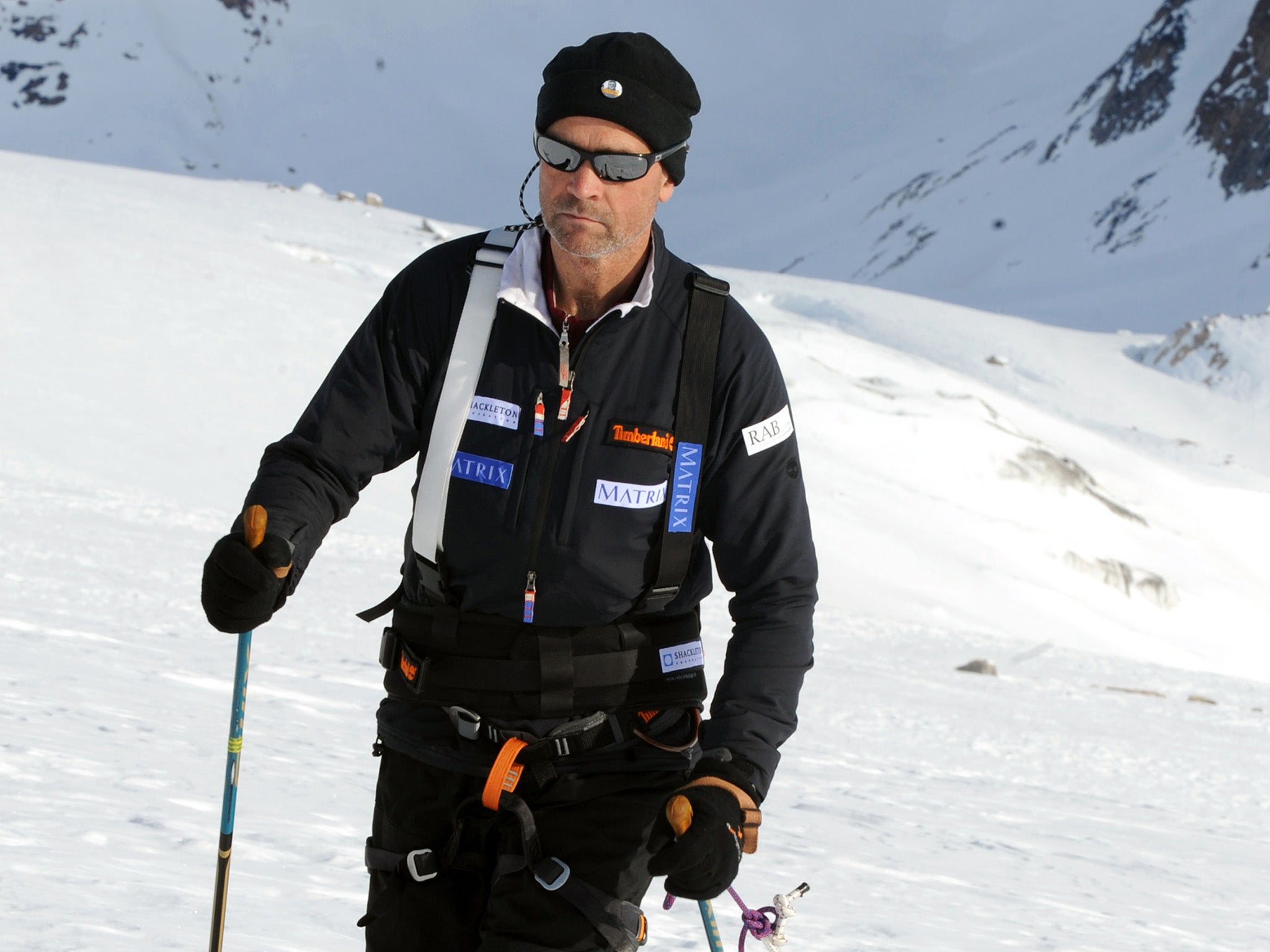Henry Worsley died doing what he loved
Henry was the essence of what one believes to be the best of the British armed forces: loyal to, and fiercely protective and proud of, his country and his fellow soldiers

There is an old Italian proverb which says: “It’s better to live one day as a lion than a lifetime as a sheep.” Henry Worsley, the brave British explorer who died at the weekend after ending his attempt to cross the Antarctic unaided and unassisted, went better than that: he lived his entire life as a lion.
Henry (who was my former brother-in-law) actually lived more lives than most of us could ever dream of. It was typical of his larger than life personality and huge generosity of spirit that this former Lieutenant Colonel perished raising money for the Endeavour Fund in aid of severely wounded veterans (Prince William and Prince Harry are supporters).
He had raised more than his target total of £100,000, a target for a cause more important to Henry than the crossing itself. But, In the last (day 70) of the daily (mesmerising) radio broadcasts from his trek, he talked of how he had “shot his bolt” like his hero Sir Ernest Shackleton. He added that he needed to “lick his wounds” and reconcile himself to the fact that he would have to call for assistance after 70 days and almost 1,000 miles, just 30 miles short of his final destination.
In the tradition of great explorers Henry was distantly related to a member of the original Shackleton team.
He had the bug. This was Henry’s third Antarctic trek since taking up exploring in his late 40s. He had reached the South Pole twice before: in 2008/9, recreating Shackleton’s Nimrod journey, and in 2012, leading a team of soldiers in a race along Amundsen’s route.
This time, he was adamant: he would go unassisted and unaided, just a driven man battling the elements and his own frailties in a landscape he absolutely adored.
We last talked the week before he left, when he humoured my incredulous questions about the physical and mental strength that such an endeavour would necessitate. With typical understatement, he insisted that it didn’t take much to simply slide one ski in front of another (for 913 statute miles in temperatures of up to -40C!), but that it was all about the mental challenge.
Henry was the essence of what one believes to be the best of the British armed forces: loyal to, and fiercely protective and proud of, his country and his fellow soldiers. He was action-man brave – obviously – but unwaveringly cool and decisive under pressure. In short, both a team player and a genuine leader of men. That said, there was so much more to him than the army and exploring.
In some ways he felt like a man out of his time, so strong was his sense of valour, duty, ethics and simply “doing the right thing” in an unmistakably British way – in an era where even to say this appears sadly unfashionable. Worsley, a truly special man, leaves a wife Joanna, son Max, daughter Alicia, mother Sally and sister Charlotte.
Join our commenting forum
Join thought-provoking conversations, follow other Independent readers and see their replies
Comments